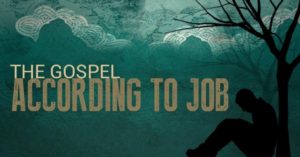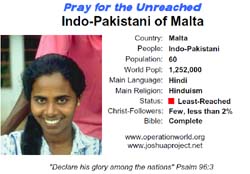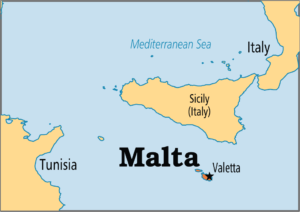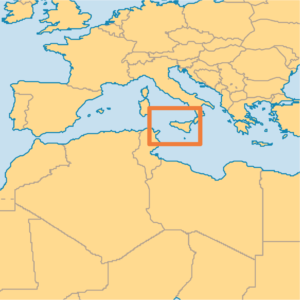AUGUST 25- TODAY’S READING FROM THE ONE YEAR BIBLE- JOB 16:1-19:29; 1 CORINTHIANS 16:1-24; PSALM 40:1-10; PROVERBS 22:1
TODAY’S READING FROM THE OLD TESTAMENT- JOB 16:1-19:29
 ‘Round Two’ of the debate between Job and his friends, Eliphaz, Bildad, and Zophar, has begun.
‘Round Two’ of the debate between Job and his friends, Eliphaz, Bildad, and Zophar, has begun.
Job’s friends were more helpful when they were silent in shock and sympathy and sat by him for seven days and nights. Now that they have launched forth their accusations, they act more like judges than friends. Job refers to them as ‘miserable comforters’ (Job 16:2).
Eliphaz is the false comforter who argues from EXPERIENCE. He projects his own home movies on Job’s life screen. In his speeches, he repeats the phrase, “I have seen” (Job 4:8; 5:3, 15:17). He makes three speeches in the book. He ends his second speech accusing Job of being a godless hypocrite (15:34, KJV).
Bildad is the false comforter who falls back on TRADITION.
Job 8:8 8 “Please inquire of past generations, and consider the things searched out by their fathers.”He sides with the ancient belief that suffering is always the result of sin, whether overt or hidden. He also accuses Job of being a hypocrite” (Job 8:13).
Zophar is the false comforter who is the LEGALIST. He not only calls Job a hypocrite (Job 20:5), but a man who is full of empty talk. He is harsh and dogmatic.
These friends could not imagine that suffering could be anything but retributive. They illustrate that apart from God-given revelation and the eyes of our hearts being enlightened, we cannot properly understand ourselves or the purpose of our lives in the context of God’s plan. Nor can we naturally perceive the wisdom of God’s ways.
Isaiah 55:8-9 8 “For My thoughts are not your thoughts, nor are your ways My ways,” declares the LORD. 9 “For as the heavens are higher than the earth, so are My ways higher than your ways And My thoughts than your thoughts.”
Job does not declare himself innocent of sin before God, but he does declare that he is innocent of the charges of his friends who have projected a false narrative upon his sufferings.
In contrast to the behavior and speeches of his friends, who argue from their natural minds and what they have gleaned from experience, tradition, and legalistic interpretations, Job said that if he were standing in their shoes, he would want to minister encouragement and comfort with the knowledge of God’s grace.
Job 16:4-5 4 “I too could speak like you, if I were in your place. I could compose words against you and shake my head at you. 5 I could strengthen you with my mouth, And the solace of my lips could lessen your pain. “
 Job is getting tired of defending himself. He confesses his fatigue in the trial:
Job is getting tired of defending himself. He confesses his fatigue in the trial:
Job 16:7 7 “But now He has exhausted me; You have laid waste all my company.”
He is losing hope (Job 17:13-16). He fails to see that God is chastening the son that He loves. He falsely perceives that God is against him.
Job 16:9 9 “His anger has torn me and hunted me down, He has gnashed at me with His teeth; My adversary glares at me.”
We see a foreshadowing of the sufferings of Christ reflected in Job’s words:
Job 16:10-11 10 “They have gaped at me with their mouth, they have slapped me on the cheek with contempt; They have massed themselves against me. 11 God hands me over to ruffians and tosses me into the hands of the wicked.” (See also Job 17:6-8).
As we recognize a foreshadowing of Christ suffering the wrath of God and the wrath of man on our behalf in the sufferings of Job, we also see the great need we all have for a mediator.
Job 16:21 21 “O that a man might plead with God As a man with his neighbor!”
We saw this longing for a mediator previously in Job 9:32
Job 9:32-33 32 “For He is not a man as I am that I may answer Him, that we may go to court together. 33 There is no umpire (mediator, middleman) between us, who may lay his hand upon us both.”
Job was saying, “O God You are holy. I am not. I cannot argue with You. If You bring me to court, I cannot answer one of a thousand questions. I need someone to provide an answer on my behalf!”
Jesus is that mediator.
1 Timothy 2:5-6 5 For there is one God, and one mediator also between God and men, the man Christ Jesus, 6 who gave Himself as a ransom for all, the testimony given at the proper time.
Because Jesus is fully God and fully man, through Him God builds a bridge between Himself and man. God builds that bridge through the rough timbers of the cross.
Matthew 20:28 28 “Just as the Son of Man did not come to be served, but to serve, and to give His life a ransom for many.”
God has made Him to be for us, our Answer. He has become for us our wisdom, righteousness, and sanctification (1 Cor 1:30).
He answers Job’s big question.
Job 9:2b; “But how can a man be in the right before God?”
Job 17:3 3 “Lay down, now, a pledge for me with Yourself; Who is there that will be my guarantor?”
Bildad speaks again in Chapter 18. He seems to discount all that Job has said. The traditionalist is not always a good listener. He seeks to apply his knowledge from the past. Once again, Bildad assigns Job a standing with the wicked and predicts that Job’s future is to be one of further deserved calamity.
Job 18:21 21 “Surely such are the dwellings of the wicked, and this is the place of him who does not know God.”
Job replies to Bildad in Chapter 19. He contrasts their unrelenting accusations and condescending pity to show how his own confidence is in his Redeemer.
Job 19:21-27 21 “Pity me, pity me, O you my friends, For the hand of God has struck me. 22 Why do you persecute me as God does, and are not satisfied with my flesh? 23 Oh that my words were written! Oh that they were inscribed in a book! 24 That with an iron stylus and lead They were engraved in the rock forever!”
25 “As for me, I know that my Redeemer lives, and at the last He will take His stand on the earth. 26 Even after my skin is destroyed, yet from my flesh I shall see God; 27 Whom I myself shall behold, and whom my eyes will see and not another. My heart faints within me!”
Job declares his faith in God’s provision of full vindication through what he has yet to discover of the finished work of Jesus Christ. Job patiently waits for God’s answer in Christ. He knows that this life is not all that there is and that in his resurrection body, He will see His Redeemer face to face.
TODAY’S READING FROM THE NEW TESTAMENT – 1 CORINTHIANS 16:1-24.
Paul is a good organizer, as is seen in Chapter 16. He calls the Corinthians to join with him in the special collection of funds for the church in Jerusalem that was experiencing hardship through persecution and famine.
This offering would demonstrate the good will of the newer predominantly Gentile churches and their solidarity with the predominantly Jewish church in Jerusalem. He was giving practical help and demonstrating the unity of Jews and Gentiles as members of the one body of Jesus Christ. Paul arranged to have churches throughout Macedonia (such as the church at Philippi), Greece (Corinth), and Asia Minor (Galatian and Colossian churches) all participate together in giving aid to the first local church birthed at Pentecost.
We learn that the custom of believers gathering for worship on the Lord’s Day, the first day of the week, in honor of the resurrection, had become a well-established pattern. Paul saw that his efforts would be most effective if people contributed to this offering proportionately in keeping with their income. In other words, he was asking for equal sacrifice among all church members, which would mean unequal amounts, as their income varied. Paul was insistent on traveling with multiple men of renown integrity. This would provide a healthy practice of accountability to ensure that the money would be safely delivered. It also would give the believers in Jerusalem an opportunity to meet members of the Gentile churches that have been birthed through the spread of the gospel.
Paul’s pastoral longing for face-to-face fellowship with the Corinthians is made clear in the final paragraphs of this chapter. He informs them of his travel plans. He acknowledges God’s overruling providence when making plans with the proviso, “if the Lord permits.” He longs to have a meaningful visit and not just a short stop while passing through
He is strategic and prayerful in his planning. He wants to make the most of every opportunity. In his letter to the Colossians and Ephesians, he encourages all Christians to do the same (Eph 5:15-16; Col 4:5). He is also realistic yet does not shy away from hardship.
1 Corinthians 16:8-9 8 But I will remain in Ephesus until Pentecost; 9 for a wide door for effective service has opened to me, and there are many adversaries.
Paul has many good things to say about his protégé Timothy in his epistles. He pays him this great compliment in 1 Corinthians 16:
1 Corinthians 16:10 10 Now if Timothy comes, see that he is with you without cause to be afraid, for he is doing the Lord’s work, as I also am.
In the Greek language, it reads literally- “he works the works of the Lord.” It is a wonderful thing to do the work of the Lord, knowing it is the Lord who is working in you and through you (Philippians 2:13).
Paul also references Apollos, whom we met in the Book of Acts. We see how Christian leaders while being submitted in their spirits to the headship of Christ and leadership in the body of Christ (16:16), were accountable to live as unto the Lord as far as their direction in ministry. Apollos was open to receiving input from the Apostle Paul for his missionary movements but also had to weigh all matters before the Lord and exercise his conscience to do what seemed best at the time. The leaders in the church were not all ‘yes men’ to the apostle Paul.
1 Corinthians 16:12 12 But concerning Apollos our brother, I encouraged him greatly to come to you with the brethren; and it was not at all his desire to come now, but he will come when he has opportunity.”
 We see the importance of valuing, recognizing and receiving every member of the body of Christ and their portion of the expression of His life. Notice Paul’s appreciation for the household of Stephanus, Fortunatus, and Achaicus.
We see the importance of valuing, recognizing and receiving every member of the body of Christ and their portion of the expression of His life. Notice Paul’s appreciation for the household of Stephanus, Fortunatus, and Achaicus.
1 Corinthians 16:18 18 For they have refreshed my spirit and yours. Therefore acknowledge such men.
Once again, we see that the planting of strong churches in Rome (Romans 16:3), Ephesus (Acts 18:26), and Corinth (1 Corinthians 16:19) was aided by tentmakers, Priscilla and Aquila, who made their home a ministry center wherever they lived!
Paul closes his letter with an encouragement to watch, be on the alert, and to stand firm in the faith.
TODAY’S READING FROM THE BOOK OF PSALMS- PSALM 40:1-10.
The Psalmist sings of God’s faithfulness in the long run. We must learn to wait patiently for the Lord. Deliverance will come. Wait for it! There will soon be a fresh song of deliverance upon our lips!
May the testimony of both our patience and God’s patience inspire others to put their trust in the Lord (Psalm 40:3).
Psalm 40:4 4 How blessed is the man who has made the LORD his trust, and has not turned to the proud, nor to those who lapse into falsehood.
The Psalmist affirms the goodness of God’s plan and then the thrust of that plan in the redemptive work of Christ:
Psalm 40:6-8 6 Sacrifice and meal offering You have not desired; My ears You have opened; Burnt offering and sin offering You have not required. 7 Then I said, “Behold, I come; In the scroll of the book it is written of me. 8 I delight to do Your will, O my God; Your Law is within my heart.”
The writer of Hebrews will relate these verses to Jesus Christ (Hebrews 10:5-9). Therefore it is clearly a Messianic Psalm, although David wrote it about his own life.
Verses 1-5 picture his deliverance during his difficult years in exile.
Verses 6-10 refer to his dedication as the new king.
Tomorrow we will read of his prayer for forgiveness and for victory over his enemies during his reign.
TODAY’S READING FROM THE BOOK OF PROVERBS- PROVERBS 22:1
Proverbs 22:1 1 A good name is to be more desired than great wealth, Favor is better than silver and gold.
To have a good name refers to having demonstrated before others a reputation of good character. The writer is not disparaging wealth, but is indicating that one’s testimony of integrity and pleasing the Lord is of greater value than material possessions or wealth.
PRAY FOR THE NATIONS- (from Operation World and Prayercast.com)
Malta
Europe
Geography
Three small but strategic islands in the central Mediterranean. Dry limestone hills with no rivers.
Population: 409,999 Annual Growth: 0.37%
Capital: Valetta
Urbanites: 94.7%
HDI Rank: 38 of 182 (UN Human Development Reports 2009)
Peoples
 Peoples: 11 (18% unreached) All peoples
Peoples: 11 (18% unreached) All peoples
Unreached Peoples Prayer Card
Official language: Maltese, English. Maltese is a unique blend of Arabic, Latin and Punic Languages: 4
Religion
Largest Religion: Christian
|
Religion |
|
Pop % |
Ann Gr |
|
396,961 |
96.82 |
0.3 |
|
|
5,245 |
1.3 |
2.3 |
Challenges for Prayer
Immigration presents a massive challenge. The numbers attempting to enter Europe (2,000 per year and increasing) could potentially overwhelm the small population of Malta. Policing its waters as well as housing and providing for such immigrants are a significant strain on Malta’s limited resources. Its proximity to North Africa – a launching point for immigrants from a host of nationalities – makes it all the more vulnerable. Maltese demonstrate general antipathy to those who exploit its accessibility. Most immigrants want to move from Malta; living in a detention center is more akin to prison than the freedom they sought. Pray for Maltese to demonstrate compassion and Christian love; pray that many of these immigrants might discover the living Christ.
Acts chapter 28 documents the crash landing of the Apostle Paul on the Mediterranean island of Malta. To this day, Paul is still considered a national symbol and the founder of Christianity on the island.
The Maltese people have a history that stretches back millennia and are descendants of the ancient Carthaginians and Phoenicians. Throughout this long history, Malta, located between Sicily and Tunisia, has been influenced by many more peoples such as the Greeks, Romans, Arabs, and British. A former colony of Great Britain, Malta received its independence in 1964 and is now a member of the European Union.
Today Malta’s economy relies heavily on trade with other European countries, manufacturing, and tourism. Malta has low unemployment in comparison to the rest of Europe and has also mostly avoided the recent European economic crisis. With the smallest economy in the eurozone, Malta only produces about 20% of its food needs and has limited domestic water and energy supplies. A great number of immigrants pour through the island as they travel from the African continent to the European mainland. These immigrants place a great strain on the Maltese economy, resulting in social tensions between themselves and the native population.
Over 96% of the Maltese people consider themselves Christians, and the great majority of this number belong to the Roman Catholic Church, with a small protestant population. The Maltese are very committed to their faith, with over 80% of the population saying their religion is important to them. The majority regularly attends mass. The first nation in Europe to become Christian, Malta has continued this legacy to modern times. Though there is a lack of Christian materials in Maltese, several Christian radio stations broadcast the Good News, and a program allows churches from around the world to adopt a Maltese village in prayer. While the Maltese have a strong Christian tradition, for many, it is just that: a tradition. The non-religious segment of society is growing quickly, and nominalism is high. At the same time, there has been a great impact, with Catholic charismatic groups, the Alpha Course, and the JESUS film growing and maturing the Church.
PRAYER: Lord, You give us new songs as we wait upon You for deliverance in each time of trial. You inspire fresh appreciation of Your faithfulness with each answer to prayer. We rejoice in every new discovery of Your mercies. We are blessed because our trust is in Your trustworthiness! Help us to be true comforters to our friends. Give us wisdom and sensitivity to the Holy Spirit so that we can minister grace to the hearer rather than condemnation. In Jesus’ Name. Amen.
Pastor David


